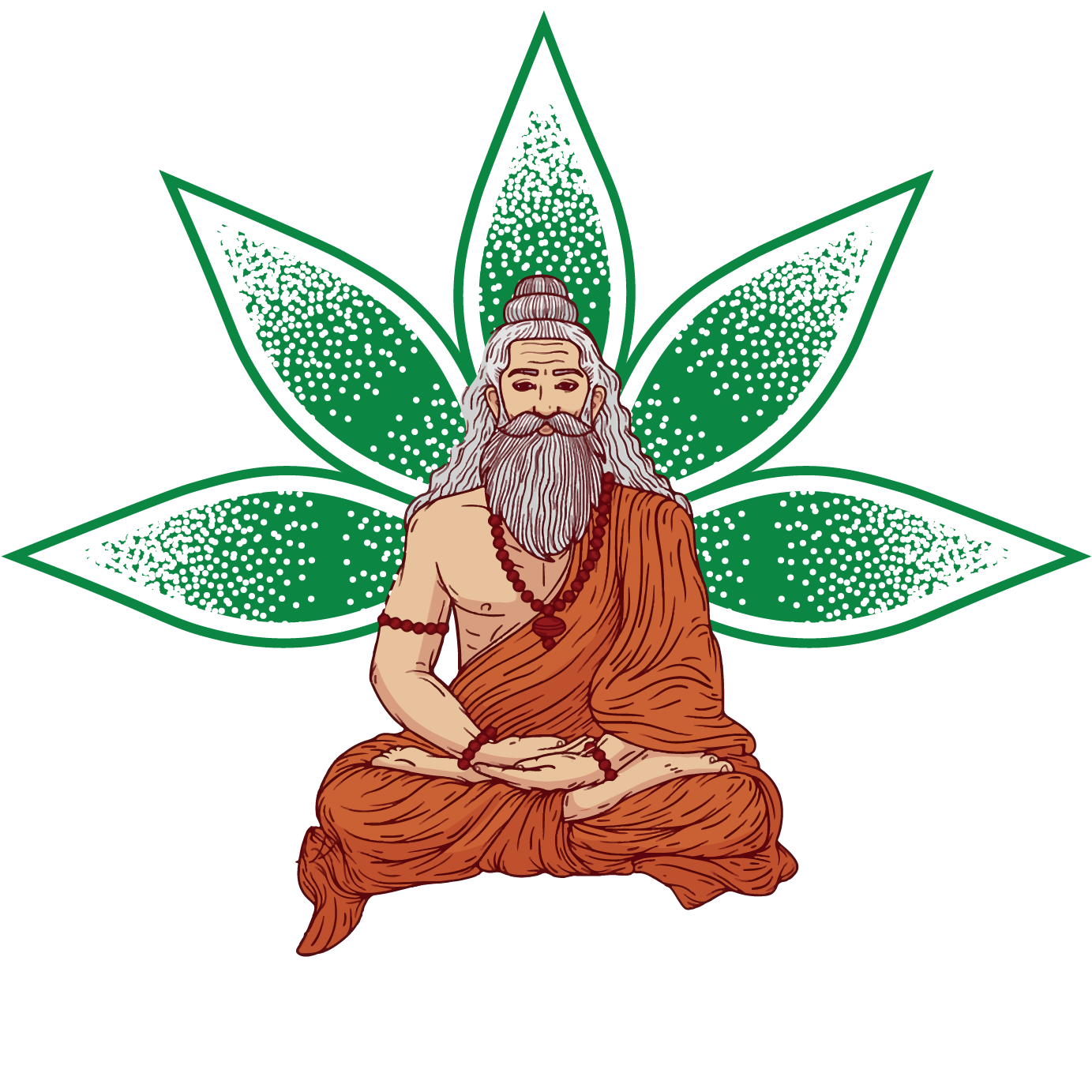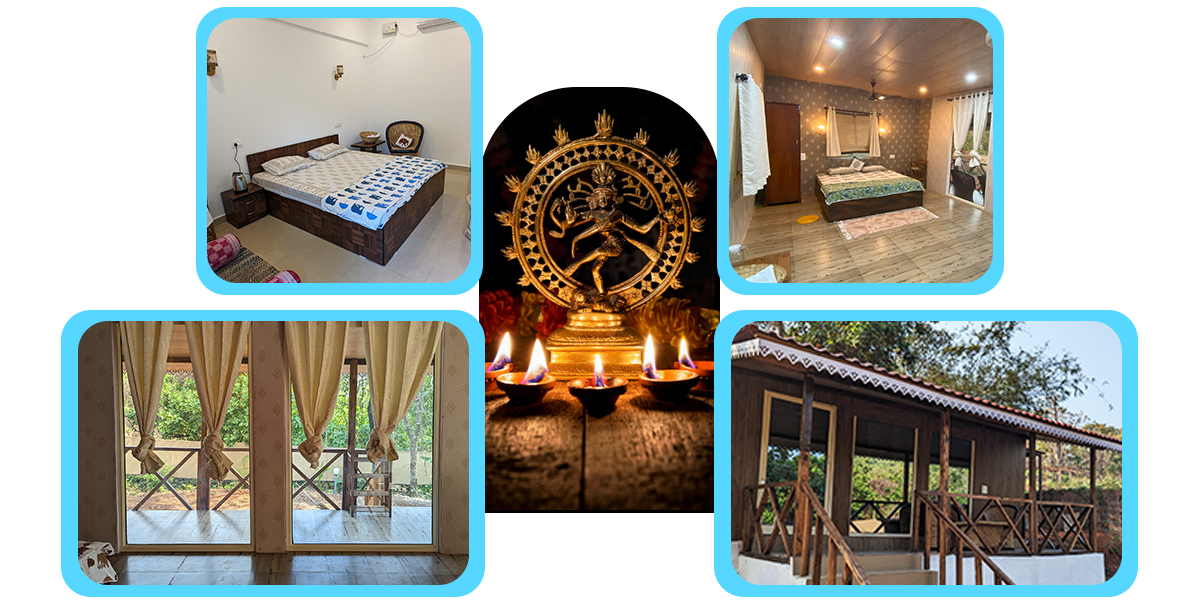Namaste,
Welcome to India Yoga School‘s Teacher Training Course (With Aerial Yoga).
- Envision yourself in a vibrant campus surrounded by lush greenery, where the melodic symphony of birdsong accompanies your yoga practice.
- We are a well-known Yoga School based in North Goa, registered with the prestigious Yoga Alliance.
✅ Our Yoga Internship program:
- Our specialty lies in offering India Yoga Internship Program (IYIP), which provides valuable opportunities for our students to gain practical teaching experience after they finish their teacher training with us.
- Through IYIP, students have the chance to apply their knowledge and skills in real yoga classes, under the guidance and mentorship of our experienced teachers.
✅ International Acknowledgement:
- Upon completion of our program, you will receive a prestigious Yoga Alliance certification. This globally recognized certification opens up the world of opportunities for you to share your passion for yoga and teach worldwide.
Location
- Our 200 hour multi-style yoga teacher training course is located in a beautiful, serene setting that is perfect for immersing yourself in your yoga practice and learning.
Food
- We offer an Ayurveda-based nutritious menu that includes a variety of whole foods such as fruits, vegetables, lean proteins, and whole grains.
- The following meals are included: Breakfast – Lunch – Dinner
Activities

Mud Bath
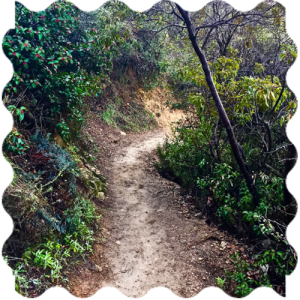
Local Treks
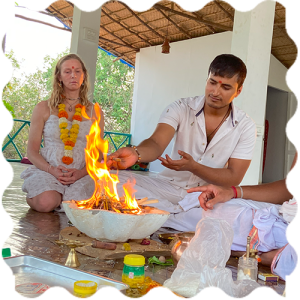
Fire Ritual
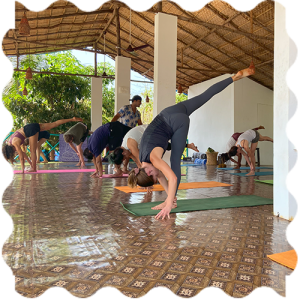
Yoga Classes

Temple Visit

Meditation
The course is designed to provide a comprehensive understanding of the various styles of yoga and how to teach them safely and effectively.
Schedule:
 Usually one day at India Yoga School will look like this | Demo Purpose only.
Usually one day at India Yoga School will look like this | Demo Purpose only.
Our Yoga Teacher Training Course (TTC) covers a comprehensive range of subjects that align with the requirements set by the Yoga Alliance.
These subjects are carefully designed to provide a well-rounded education and ensure that our students are equipped with the necessary knowledge and skills to become certified yoga teachers.
- Pranayama is the ancient yogic practice of breath control, involving specific techniques to regulate and expand the breath for improved physical, mental, and spiritual well-being.
Subject framework:
- Introduction to the fundamentals and principles of pranayama.
- Various pranayama techniques such as Anulom Vilom (Alternate Nostril Breathing), Bhastrika (Bellows Breath), Ujjayi (Victorious Breath), Sheetali (Cooling Breath), Sheetkari (Hissing Breath), Brahmari (Bee Breath), Surya Bhedana (Right Nostril Breathing), Chandra Bhedana (Left Nostril Breathing).
- The significance of prana (life force energy) and its connection to overall well-being.
-
Hatha Yoga:
Hatha yoga is a traditional form of yoga that focuses on physical postures (asanas) and breath control (pranayama).
Subject Framework:
We’ll be covering asanas from below categories:
- Arm balancing Asans.
- Backward bending Asanas
- Forward Bending Asanas
- Inversions.
- Twisting Poses.
- Sideward Bending Asana
Our Hatha approach:
- Foundational Hatha Yoga poses
- Static holds
- Modifications and variations
- Mindful movement
- Integration of correct breathing
-
Aerial yoga is a unique form of yoga that incorporates a silk hammock suspended from the ceiling to support and deepen yoga poses. It combines elements of traditional yoga, acrobatics, and aerial arts to enhance strength, flexibility, and body awareness.
Subject Framework:
- Fundamentals of aerial yoga
- Aerial yoga poses and sequences
- Core strength and stability
-
Ashtanga Vinyasa Yoga, popularized by K. Pattabhi Jois in the 20th century, was influenced by the teachings of Krishnamacharya.
Subject Framework:
- Ashtanga Vinyasa Surya Namaskar A
- Ashtanga Vinyasa Surya Namaskar B
- Ashtanga Vinyasa Primary Series
- Alignment and Modifications.
-
Yoga kriya are purification techniques in yoga that aim to cleanse the body, balance energy, and promote overall well-being.
Subject Framework:
- Understanding the contraindications, precautions, and modifications related to specific Kriyas.
- You’ll learn the following Kriyas and their detailed anatomical explanations::
- Kapalabhati
- Jal Neti
- Sutra Neti
- Nauli
- Trataka
-
Yoga philosophy is the study and exploration of ancient wisdom and principles that guide the yogic lifestyle, offering insights into the nature of existence and the path to self-realization and inner peace.
Subject framework:
- The history, meaning, and lifestyle of yoga
- The four paths of yoga: Jnana Yoga, Raja Yoga, Bhakti Yoga, Karma Yoga
- The principles and teachings of Patanjali’s Yoga Sutras
- Introduction to Bhagvada Gita
- The eight limbs of Ashtanga Yoga
- Concepts of three gunas: Sattva, Rajas, Tamas
-
In our anatomy class, you’ll learn the do the comprehensive study of the body’s physical structures, such as muscles, bones, joints, and organs, with a specific focus on their relevance and application in yoga practice and instruction.
Subject framework:
- Skeletal system
- Muscular system
- Respiratory system
- Anatomy of the spine
- Postural alignment
- Individual variations
- Energy systems (Prana and Chakras)
- Anatomy of the subtle body
-
Ayurveda is an ancient Indian system of medicine and healing that focuses on restoring and maintaining balance in the body and mind. It views each individual as unique and focuses on addressing the root causes of imbalances rather than just treating symptoms.
Subject Framework:
In our Ayurveda class, students will learn:
- Fundamentals of Ayurveda, including the three doshas (Vata, Pitta, Kapha) and their qualities.
- How to determine their individual constitution (Prakriti) and understand its impact on health.
- Ayurvedic lifestyle practices for maintaining balance and well-being.
- Principles of Ayurvedic nutrition and suitable foods for each dosha.
- Techniques for cleansing and detoxification in Ayurveda.
-
Meditation is a practice that involves training the mind to achieve a state of deep inner peace and relaxation. It helps in cultivating mindfulness, enhancing self-awareness, and promoting mental clarity.
Subject framework:
- The concept and purpose of meditation
- How to establish a regular meditation practice
- Techniques to cultivate focus, concentration, and present-moment awareness
Various meditation techniques:
- Mindfulness meditation
- Visualization meditation
- Mantra meditation
- Loving-kindness meditation
- Chakra meditation (working with the energy centers in the body)
- Introduction to Yog Nidra
-
Mantra chanting involves the repetition of sacred sounds, words, or phrases, creating a vibrational resonance that helps to focus the mind, cultivate positive energy, and connect with higher states of consciousness.
Subject framework:
- The principles and techniques of chanting sacred mantras.
- The meanings and significance of popular mantras such as Om, Gayatri Mantra, Maha Mrityunjaya Mantra, Shanti Mantras, Shiva Mantras, Goddess Mantras, and Gayatri Mantra.
- Correct pronunciation, rhythm, and intonation of mantras.
-
In Alignment Classes, you’ll learn precise body alignment techniques, proper posture adjustments, and how to achieve optimal alignment in various yoga asanas.
Subject framework:
- Hands-On Adjustments and Use of Props
- Contraindications and Limitations
-
Teaching Methodology class is essential for you as it’ll equip you with the skills, knowledge, and tools necessary to create well-structured classes, effectively communicate with students, and develop your own unique teaching style.
Subject framework:
- Principles of Class Sequencing and Lesson Planning
- Effective Communication
- Generating Cues for Any Yoga Sequence
These subjects are carefully designed to provide a well-rounded education and ensure that our students are equipped with the necessary knowledge and skills to become certified yoga teachers.
- Pranayama is the ancient yogic practice of breath control, involving specific techniques to regulate and expand the breath for improved physical, mental, and spiritual well-being.
Subject framework:
- Introduction to the fundamentals and principles of pranayama.
- Various pranayama techniques such as Anulom Vilom (Alternate Nostril Breathing), Bhastrika (Bellows Breath), Ujjayi (Victorious Breath), Sheetali (Cooling Breath), Sheetkari (Hissing Breath), Brahmari (Bee Breath), Surya Bhedana (Right Nostril Breathing), Chandra Bhedana (Left Nostril Breathing).
- The significance of prana (life force energy) and its connection to overall well-being.
-
Hatha Yoga:
Hatha yoga is a traditional form of yoga that focuses on physical postures (asanas) and breath control (pranayama).
Subject Framework:
We’ll be covering asanas from below categories:
- Arm balancing Asans.
- Backward bending Asanas
- Forward Bending Asanas
- Inversions.
- Twisting Poses.
- Sideward Bending Asana
Our Hatha approach:
- Foundational Hatha Yoga poses
- Static holds
- Modifications and variations
- Mindful movement
- Integration of correct breathing
Aerial yoga is a unique form of yoga that incorporates a silk hammock suspended from the ceiling to support and deepen yoga poses. It combines elements of traditional yoga, acrobatics, and aerial arts to enhance strength, flexibility, and body awareness.
Subject Framework:
- Fundamentals of aerial yoga
- Aerial yoga poses and sequences
- Core strength and stability
-
Ashtanga Vinyasa Yoga, popularized by K. Pattabhi Jois in the 20th century, was influenced by the teachings of Krishnamacharya.
Subject Framework:
- Ashtanga Vinyasa Surya Namaskar A
- Ashtanga Vinyasa Surya Namaskar B
- Ashtanga Vinyasa Primary Series
- Alignment and Modifications.
-
Yoga kriya are purification techniques in yoga that aim to cleanse the body, balance energy, and promote overall well-being.
Subject Framework:
- Understanding the contraindications, precautions, and modifications related to specific Kriyas.
- You’ll learn the following Kriyas and their detailed anatomical explanations::
- Kapalabhati
- Jal Neti
- Sutra Neti
- Nauli
- Trataka
-
Yoga philosophy is the study and exploration of ancient wisdom and principles that guide the yogic lifestyle, offering insights into the nature of existence and the path to self-realization and inner peace.
Subject framework:
- The history, meaning, and lifestyle of yoga
- The four paths of yoga: Jnana Yoga, Raja Yoga, Bhakti Yoga, Karma Yoga
- The principles and teachings of Patanjali’s Yoga Sutras
- Introduction to Bhagvada Gita
- The eight limbs of Ashtanga Yoga
- Concepts of three gunas: Sattva, Rajas, Tamas
-
In our anatomy class, you’ll learn the do the comprehensive study of the body’s physical structures, such as muscles, bones, joints, and organs, with a specific focus on their relevance and application in yoga practice and instruction.
Subject framework:
- Skeletal system
- Muscular system
- Respiratory system
- Anatomy of the spine
- Postural alignment
- Individual variations
- Energy systems (Prana and Chakras)
- Anatomy of the subtle body
-
Ayurveda is an ancient Indian system of medicine and healing that focuses on restoring and maintaining balance in the body and mind. It views each individual as unique and focuses on addressing the root causes of imbalances rather than just treating symptoms.
Subject Framework:
In our Ayurveda class, students will learn:
- Fundamentals of Ayurveda, including the three doshas (Vata, Pitta, Kapha) and their qualities.
- How to determine their individual constitution (Prakriti) and understand its impact on health.
- Ayurvedic lifestyle practices for maintaining balance and well-being.
- Principles of Ayurvedic nutrition and suitable foods for each dosha.
- Techniques for cleansing and detoxification in Ayurveda.
-
Meditation is a practice that involves training the mind to achieve a state of deep inner peace and relaxation. It helps in cultivating mindfulness, enhancing self-awareness, and promoting mental clarity.
Subject framework:
- The concept and purpose of meditation
- How to establish a regular meditation practice
- Techniques to cultivate focus, concentration, and present-moment awareness
Various meditation techniques:
- Mindfulness meditation
- Visualization meditation
- Mantra meditation
- Loving-kindness meditation
- Chakra meditation (working with the energy centers in the body)
- Introduction to Yog Nidra
-
Mantra chanting involves the repetition of sacred sounds, words, or phrases, creating a vibrational resonance that helps to focus the mind, cultivate positive energy, and connect with higher states of consciousness.
Subject framework:
- The principles and techniques of chanting sacred mantras.
- The meanings and significance of popular mantras such as Om, Gayatri Mantra, Maha Mrityunjaya Mantra, Shanti Mantras, Shiva Mantras, Goddess Mantras, and Gayatri Mantra.
- Correct pronunciation, rhythm, and intonation of mantras.
-
In Alignment Classes, you’ll learn precise body alignment techniques, proper posture adjustments, and how to achieve optimal alignment in various yoga asanas.
Subject framework:
- Hands-On Adjustments and Use of Props
- Contraindications and Limitations
-
Teaching Methodology class is essential for you as it’ll equip you with the skills, knowledge, and tools necessary to create well-structured classes, effectively communicate with students, and develop your own unique teaching style.
Subject framework:
- Principles of Class Sequencing and Lesson Planning
- Effective Communication
- Generating Cues for Any Yoga Sequence
Requirements for Participation:
‘We welcome everyone who has willingness to learn’
Yes, we welcome individuals of all levels of experience and fitness. The main requirement is:
- A willingness to learn,
- An open-minded attitude,
- And a commitment to the full program.
Even if you are not interested in becoming a yoga teacher, our multi-style yoga teacher training course can be a great way to deepen your personal practice and expand your knowledge of yoga.
YOGA ALLIANCE AFFILIATION: It’s also important to note that our program is affiliated with Yoga Alliance and upon completion of the training, the graduates will be eligible to register with Yoga Alliance as RYT 200 (Registered Yoga Teacher 200 hour) and teach yoga worldwide.
Why You Should Choose
India Yoga School ?
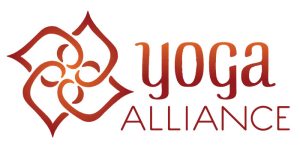
You’ll receive a Yoga alliance registered certificate and you’ll be immediately able to register yourself with the Yoga Alliance and become a registered yoga teacher.

You’ll have the best team of teachers from all over the world, specially teachers from different corners of India teaching you various philosophical connections of your practice with the authenticity of Indian Yoga practices.
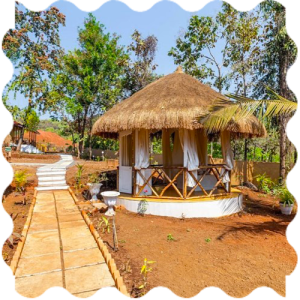
The location of the TTC is chosen for its natural beauty and peaceful setting, which provides the perfect environment for personal growth and learning.
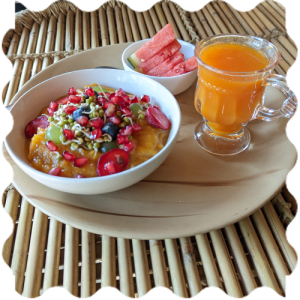
We offer an Ayurveda-based nutritious menu that includes a variety of whole foods such as fruits, vegetables, lean proteins, and whole grains.
The course fee includes accommodation,meals,Training materials which helps to keep the overall cost of the training down.
The cost of our course is kept well within the range of €1000 – €2000 depending on the program type and accommodation type, so it’s affordable for most people.
This way, we make sure that the financial aspect is not a hindrance for anyone who wishes to deepen their practice and learn more about yoga.

Our 200 hour TTC is a great opportunity for those who want to deepen their understanding of yoga and become certified yoga teachers. With the right location and team of teachers, it will be a truly transformative experience for you.

You’ll receive a Yoga alliance registered certificate and you’ll be immediately able to register yourself with the Yoga Alliance and become a registered yoga teacher.

You’ll have the best team of teachers from all over the world, specially teachers from different corners of India teaching you various philosophical connections of your practice with the authenticity of Indian Yoga practices.

The location of the TTC is chosen for its natural beauty and peaceful setting, which provides the perfect environment for personal growth and learning.

We offer an Ayurveda-based nutritious menu that includes a variety of whole foods such as fruits, vegetables, lean proteins, and whole grains.
The course fee includes accommodation,meals,Training materials which helps to keep the overall cost of the training down.
The cost of our course is kept well within the range of €1000 – €2000 depending on the program type and accommodation type, so it’s affordable for most people.
This way, we make sure that the financial aspect is not a hindrance for anyone who wishes to deepen their practice and learn more about yoga.

Our 200 hour TTC is a great opportunity for those who want to deepen their understanding of yoga and become certified yoga teachers. With the right location and team of teachers, it will be a truly transformative experience for you.
When ?
1 in 2 Sharing
2 in 2 Sharing
1 Private
How to Apply ?
Cancellation Policy
- In case of cancellation of the course, deposit amount is non-refundable, but it can be transferred to another available date.
- The transfer of the course is only applicable to the same individual and cannot be transferred to any other person.
- If a student doesn’t appear or chooses to leave the course before completion without valid reasons, they will be liable to pay the full amount of the course.
- In the unlikely event that the school cancels the course, students are entitled to a full refund of the course fee.

